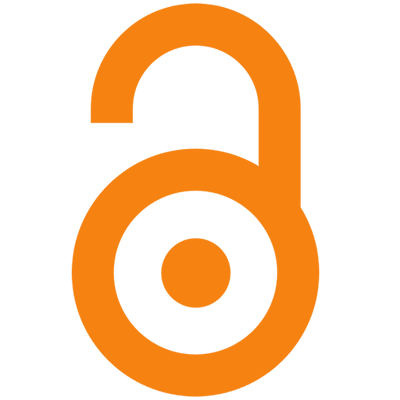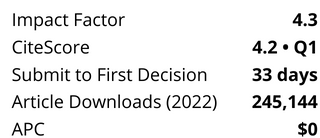AQUA has made it a key goal to facilitate bridging between utilities and academia and introduces an engaging challenge for utilities and academia.
‘What does his lucid explanation amount to but this, that in theory there is no difference between theory and practice, while in practice there is?’ wrote Benjamin Brewster in the Yale Literary Magazine in 1882.
Today the perception that theory does not apply well to real-life operations remains a difficult barrier to overcome between water utilities and water academia. However, especially these days, while we are working on re-creating a sustainable human society, the need for utilities and academia to collaborate is more important than ever.
We believe that research has important insights to contribute to utilities - and we believe that without research we will not reach the goals of a sustainable world. Utilities are crucial in ensuring water sustainability because this is to a large extent where the practical implementation is done. Utilities have been thrown into frontline sustainability work. Hence, as we strive to build sustainable and regenerative societies it is crucial that utilities and academia move closer to each other.
It ought to be so in the field of water that academics spends a significant amount of their time in water utilities and that water utilities would welcome academia to look at their challenges - waiting in suspense for research updates. Those who have worked to bridge this gap between theory and practice know the difficulties involved: communication is difficult, the aims of the two groups differ, progress can often be slow with many set-backs due to a multitude of practical issues and the recognition for the work is often modest whether you work on the industrial side with academic questions or on the academic side with industrial questions.
Therefore, AQUA will now launch the ‘AQUA Utility Research Battle’ to provide a space for utilities to challenge academia with intriguing problems and questions. In turn the challenge provides academia a way to get their hands on high-profile, real-life cases. With multiple teams working to solve these challenges, we aim to provide a field for comparison of ideas and approaches.
ABOUT The AQUA UTILITY RESEARCH BATTLE
We are calling for two new types of papers, ‘challenge papers’ and ‘solution papers’.
Step 1
Firstly, we invite leading utilities to submit ‘challenge papers’ describing the questions or problems they imagine could benefit from a research perspective. From the submitted ‘challenge papers’ the three most appealing will be chosen by the Editors in Chief. The three papers will be published in AQUA and as open access papers.
Step 2
The ‘challenge papers’ act as invitations to academia to compete for the best science-based solution to the utility challenge. ‘Solution papers’ should present interesting research-based solutions to one of the challenges and will be published to inspire the whole industry. The hope is to inspire both utilities and academia in how research can be applied to real-life problems.
Step 3
One year after publication of the ‘challenge papers’, the authors of the challenge papers together with Editors in Chief will decide which ‘solution papers’ presents the most promising science-based idea. The winner will be awarded the prize of an IWA Publishing book for winning the AQUA Utility Research Battle. The winning paper will be made open access and promoted on the AQUA website and the authors will be included in a new ‘AQUA Hall of Fame’ on the website.
A CALL FOR UTILITIES TO SUBMIT ‘CHALLENGE PAPERS 2020’ To AQUA
Are you in a leading utility or do you have a great problem or challenge? Then submit a paper describing the challenge.
We are looking for challenges from all AQUA’s key areas:
Water sustainability
Water infrastructure
Water technologies
Water management and governance
In your paper please give some context about the problem. Try to state the problem as a clear – yet open – challenge or a question. Remember to include all relevant data. It is possible to drop large amounts of data, that we can make available to the scientific community as well. Feel free to write about your own thoughts about the solution but leave space for the researchers to work in different ways.
Remember to include:
detailed description of the problem or the challenge
description of relevant data and resources – such as volumes, flows, loads, concentrations, or if the problem goes beyond the technical realm – governance setting, legal texts, existing socio-economic reports, etc.
relevant data from SCADA systems or similar (these will be made available via the website)
description of the most important parameters, or evaluation criteria, with which you would rate a good solution to the challenge
contact information (email) for follow-up questions
Please follow the journal's Instructions for Authors.
How to submit your utility challenge: Use the online submission system to submit your challenge, using the Section/Category ‘Utility Research Battle’, no later than 20 December 2020.
We encourage direct collaboration between utility and academia and would be happy to see new partnerships as a result of this battle. Hence, it is not considered ‘cheating’ to co-author papers between utilities and academia. However, we leave the establishment of such collaborations to utilities and researchers.
CRITERIA FOR SELECTION
Criteria for selecting ‘challenge papers’:
- 1.
Real-life problem from a utility – preferably a problem relevant for many utilities
- 2.
A solution to the challenge is likely to contribute to practical water sustainability
- 3.
A good, clear and challenging framing of the problem
- 4.
Adequate amount and quality of data that researchers can work on
Criteria for selecting ‘solutions papers’:
- 1.
Science-based
- 2.
Novel idea or novel approach
- 3.
Makes a significant contribution to solving the problem
- 4.
Number of downloads of the ‘solution paper’




%20cropped.png?versionId=5947)